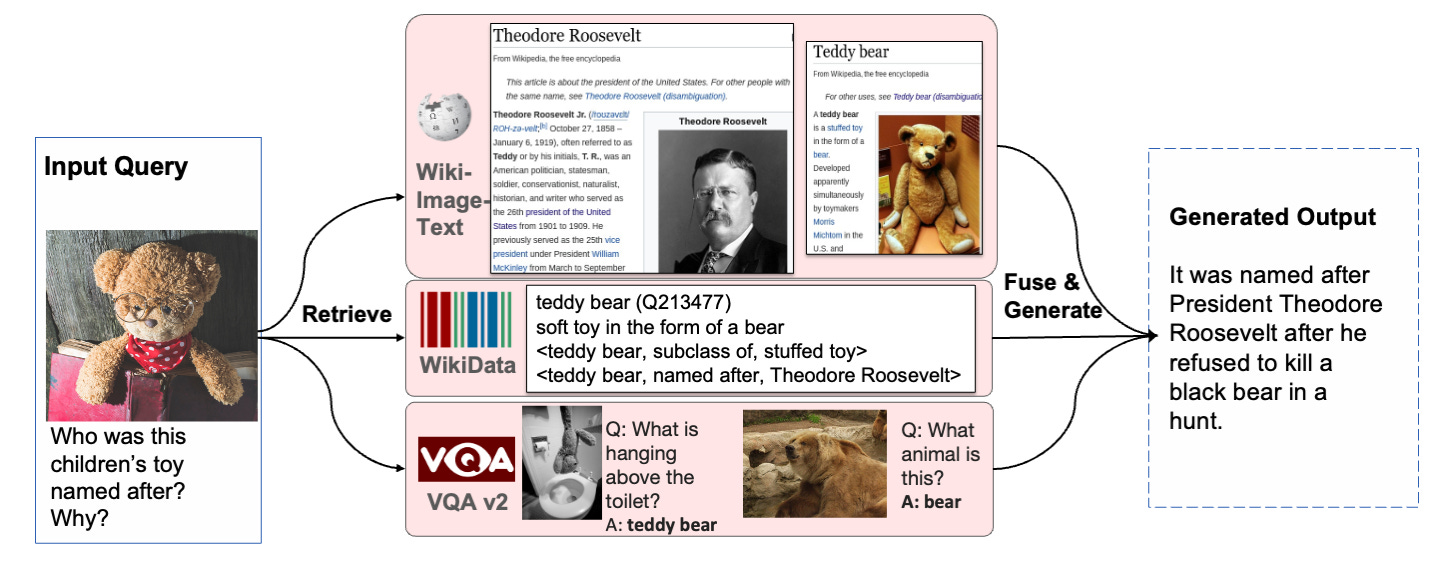NVIDIA’s New AI Turns 2D Videos into 3D Models
Plus: OpenAI's Cybersecurity Grant, Google Research's REVEAL, MS Teams' new AI features
Hello, Engineering Leaders and AI Enthusiasts,
Welcome to the 33rd edition of The AI Edge newsletter. In today’s edition, we bring you NVIDIA’s new AI model, Neuralangelo, that turns 2D videos into detailed 3D strcutures. Thank you everyone who is reading this. 😊
In today’s edition:
🏙️ Neuralangelo, NVIDIA’s new AI model, turns 2D video into 3D structures
🛡️ OpenAI announces $1M Cybersecurity Grant Program
🤖 Retrieval-augmented visual-language pre-training model from Google Research
👥 Micorsoft Teams to get Discord-like communities and an AI art tool
📚 Knowledge Nugget: The key generative AI terms and how they affect your organization by Google
Let’s go!
Neuralangelo, NVIDIA’s new AI model, turns 2D video into 3D structures
NVIDIA Research has introduced a new AI model for 3D reconstruction called Neuralangelo. It uses neural networks to turn 2D video clips from any device– cell phone to drone capture– into detailed 3D structures, generating lifelike virtual replicas of buildings, sculptures, and other real-world objects.
Neuralangelo’s ability to translate the textures of complex materials — including roof shingles, panes of glass, and smooth marble — from 2D videos to 3D assets significantly surpasses prior methods. The high fidelity makes its 3D reconstructions easier for developers and creative professionals to rapidly create usable virtual objects for their projects using footage captured by smartphones.
Why does this matter?
Neuralangelo represents a significant advancement in AI, opening up exciting possibilities for various industries and encouraging further research and development. Moreover, it will enable developers to easily import detailed objects into virtual environments for video game development, robotics, or industrial digital twins.
OpenAI announces $1M Cybersecurity Grant Program to boost AI-powered security
OpenAI is launching the Cybersecurity Grant Program—a $1M initiative to boost and quantify AI-powered cybersecurity capabilities and to foster high-level AI and cybersecurity discourse. The goal is to work with defenders across the globe to change the power dynamics of cybersecurity through the application of AI and the coordination of like-minded individuals working for collective safety.
OpenAI has also shared a few general project ideas while sharing the news. Moreover, it will prioritize projects intended to be licensed or distributed for maximal public benefit and sharing.
Why does this matter?
With deep fake-related frauds on the rise, this is a much-needed initiative to protect society and organizations. Moreover, it will drive innovation and make a significant impact in the field of AI and cybersecurity. It can foster the development of advanced AI technologies that can detect and mitigate deep fake-related threats, thereby enhancing the security and trustworthiness of digital media and online interactions.
Google’s retrieval-augmented model addresses the challenge of pre-training
Large-scale models like T5, GPT-3, PaLM, Flamingo, and PaLI have shown impressive knowledge storage abilities but require massive amounts of data and computational resources. Retrieval-augmented models in natural language processing (RETRO, REALM) and computer vision (KAT) aim to overcome these challenges by leveraging retrieval techniques. And researchers have attempted to address these challenges using retrieval-augmented models.
This model, “REVEAL: Retrieval-Augmented Visual-Language Pre-Training with Multi-Source Multimodal Knowledge Memory,” can provide up-to-date information and improve efficiency by retrieving relevant information instead of relying solely on pre-training.
It learns to utilize a multi-source multi-modal “memory” to answer knowledge-intensive queries & allows the model parameters to focus on reasoning about the query rather than being dedicated to memorization.
Why does this matter?
REVEAL can efficiently reduce the need for massive amounts of training data and computational resources. This advancement has a substantial impact on the development of AI, large language models, and technology, as it allows for more up-to-date knowledge retrieval and enhances the overall capabilities of these models.
Microsoft’s answer to Facebook and Discord by launching an AI art tool & biggest updates
Microsoft is enhancing the free version of Microsoft Teams on Windows 11 by introducing new features. The built-in Teams app will now include support for communities, allowing users to organize and interact with family, friends, or small community groups. This feature, similar to Facebook and Discord, was previously limited to mobile devices but is now available for Windows 11. Users can create communities, invite members, host events, moderate content, and receive notifications about important activities. Microsoft plans to extend community support to Windows 10, macOS, and the web.
Microsoft Designer, an AI art tool for generating images based on text prompts, will also be integrated into Microsoft Teams on Windows 11. The tool can be used to create event invitations and community banners.
Why does this matter?
These updates to Microsoft Teams bring convenience, creativity, and improved communication to users, making it easier to organize, collaborate, and engage within communities while offering a more seamless and integrated user experience.
Knowledge Nugget: The key generative AI terms and how they affect your organization.
Generative AI, with its immense potential and rapid advancements, presents an extraordinary vocabulary challenge. It is a novel, potent, intricate field progressing swiftly and demands strategic attention.
However, there is no need to fret as we have covered you. In this full-packed scholarly article, we will elucidate essential terms and concepts you should grasp to engage in fluent discussions about generative AI and make informed decisions regarding its implementation within your organization. Some of them are:
Generative AI itself
Large models
Foundation models
Prompt design
Parameter-efficient tuning,
Reinforcement Learning from human feedback (RLHF)
Why does this matter?
By sharing this, Google enables individuals and organizations to communicate more effectively and efficiently about Generative AI. It promotes a shared understanding, crucial for collaboration, problem-solving, and innovation.
Secondly, the initiative helps organizations grasp the potential implications of generative AI. It allows decision-makers to evaluate the strategic relevance and identify potential use cases within their specific industry or organizational context.
What Else Is Happening
🚁 AI-enabled helicopters bring drone-like control, paving the way for robotic battlefields (Link)
📱 SnapFusion enables a text-to-image diffusion model on mobile devices within 2 secs. (Link)
💪 Accenture strengthens AI and ML Engineering through Nextira acquisition (Link)
🚀 Alibaba reveals its first LLM just like ChatGPT (Link)
⚡️ Automation Anywhere and AWS teams up to revolutionize enterprise processes with Gen AI (Link)
Trending Tools
Quest AI: Transform design-to-dev workflow with AI/GPT. Generate working ReactJS from wireframes or Figma designs.
FineCam 2.0: AI virtual camera for video recording and conferencing. Create high-definition videos and engaging conferences.
Narrated Tours: AI audio tour guide. Enter a destination for a bespoke walking route with downloadable audio guides.
AI Resume Screener: Ask questions, get summaries of candidate profiles, and find the best-suited candidates for a role.
Allinpod: Speech generation app for content creators. Create engaging audio and video content with Besties.
MakeStories: AI Story Builder. Provide a URL or topic for AI-generated slides. Add media, publish, and watch your story come to life.
BarGPT: Harness AI to make better cocktails. Describe your idea and let BarGPT generate a unique cocktail recipe and picture.
Whiteboard AI: Interactive learning with instant answers to questions. Guides learning based on video knowledge bases via Chrome extension.
That's all for now!
If you are new to ‘The AI Edge’ newsletter. Subscribe to receive the ‘Ultimate AI tools and ChatGPT Prompt guide’ specifically designed for Engineering Leaders and AI enthusiasts.
Thanks for reading, and see you tomorrow.




